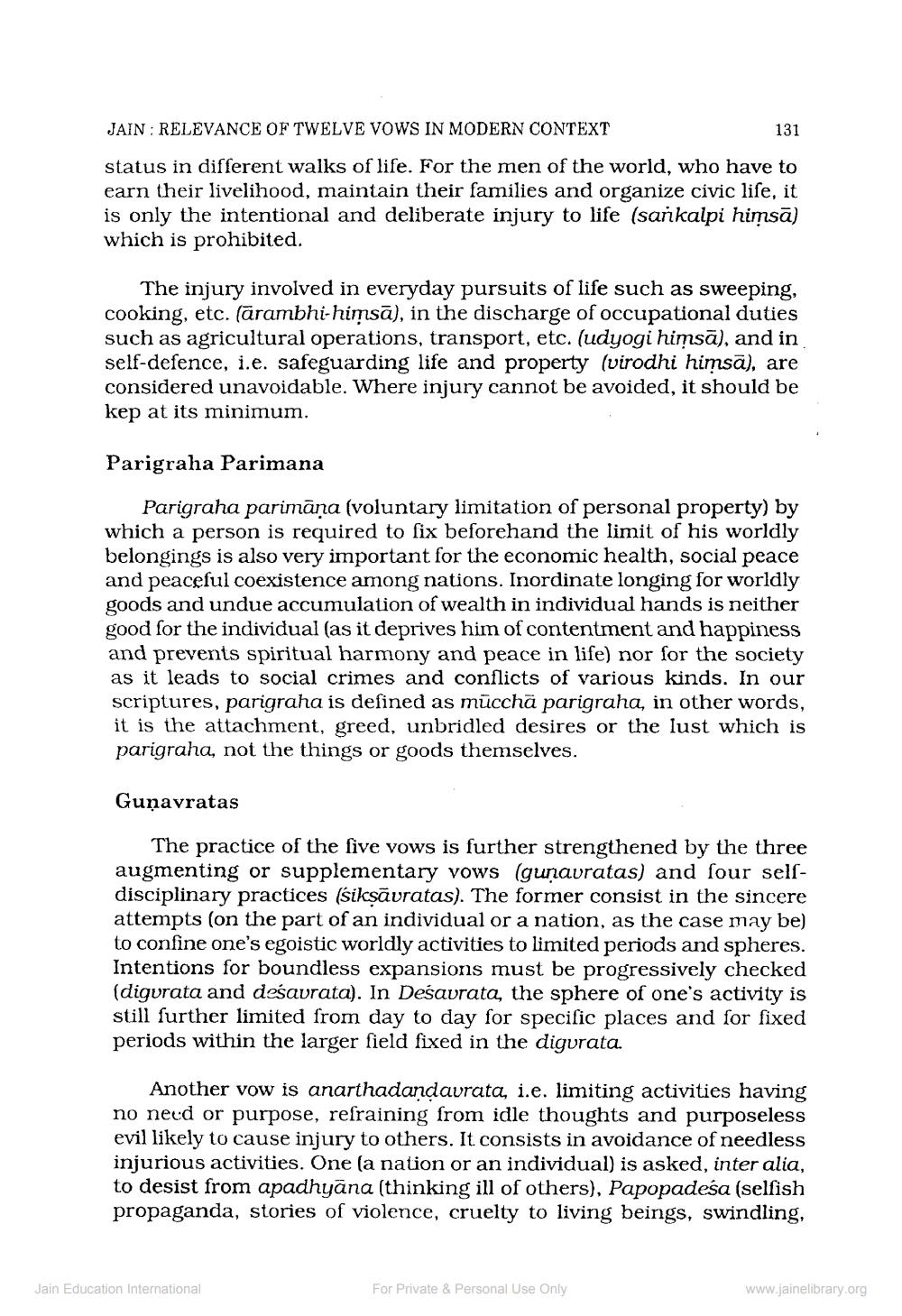________________
JAIN : RELEVANCE OF TWELVE VOWS IN MODERN CONTEXT
131
status in different walks of life. For the men of the world, who have to earn their livelihood, maintain their families and organize civic life, it is only the intentional and deliberate injury to life (sankalpi himsā) which is prohibited.
The injury involved in everyday pursuits of life such as sweeping, cooking, etc. (ārambhi-himsā), in the discharge of occupational duties such as agricultural operations, transport, etc. (udyogi himsā), and in self-defence, i.e. safeguarding life and property (virodhi himsā), are considered unavoidable. Where injury cannot be avoided, it should be kep at its minimum.
Parigraha Parimana
dinate
Parigraha parimana (voluntary limitation of personal property) by which a person is required to fix beforehand the limit of his worldly belongings is also very important for the economic health, social peace and peaceful coexistence among nations. Inordinate longing for worldly goods and undue accumulation of wealth in individual hands is neither good for the individual (as it deprives him of contentment and happiness and prevents spiritual harmony and peace in life) nor for the society as it leads to social crimes and conflicts of various kinds. In our scriptures, parigraha is defined as mūcchä parigraha, in other words, it is the attachment, greed, unbridled desires or the lust which is parigraha, not the things or goods themselves.
atual bar deprive Calth in
Guņavratas
The practice of the five vows is further strengthened by the three augmenting or supplementary vows (gunauratas) and four selfdisciplinary practices (siksāvratas). The former consist in the sincere attempts (on the part of an individual or a nation, as the case may be) to confine one's egoistic worldly activities to limited periods and spheres. Intentions for boundless expansions must be progressively checked (digurata and deśavrata). In Deśavrata, the sphere of one's activity is still further limited from day to day for specific places and for fixed periods within the larger field fixed in the digurata.
Another vow is anarthadandavrata, i.e. limiting activities having no need or purpose, refraining from idle thoughts and purposeless evil likely to cause injury to others. It consists in avoidance of needless injurious activities. One (a nation or an individual) is asked, inter alia, to desist from apadhyāna (thinking ill of others), Papopadesa (selfish propaganda, stories of violence, cruelty to living beings, swindling,
Jain Education International
For Private & Personal Use Only
www.jainelibrary.org




